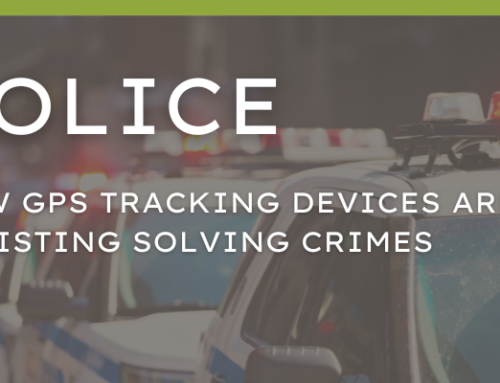In a world where information is everything, private investigators play a vital role in uncovering the truth. But how do they balance the need to gather evidence with the legal and ethical boundaries of tracking? This article delves into the fascinating world of private investigators, exploring the techniques they use to stay one step ahead while adhering to the law.
Private investigators employ a wide range of tools and strategies to collect information, from surveillance to electronic tracking. But as technology evolves, so do the challenges they face in staying within legal limits. This article examines the legal parameters surrounding tracking and surveillance, exploring the ethical considerations that guide a private investigator’s conduct.
Understanding the delicate balance between privacy rights and the pursuit of justice is essential for a private investigator. By delving into real-world cases and examining the ethical dilemmas they present, this article sheds light on how these professionals navigate the murky waters of the investigative field.
From protecting clients’ confidentiality to operating within the boundaries defined by the law, private investigators must constantly adapt to the ever-changing landscape of tracking. Join us as we delve into the world of private investigation and explore the strategies these professionals employ to stay on the right side of the law.
Understanding the legal boundaries of tracking
Private investigators employ a wide range of tools and strategies to collect information, from surveillance to electronic tracking. However, it is crucial for them to understand and operate within the legal boundaries of their work. Tracking someone without proper authorization can lead to severe legal consequences.
Private investigators must familiarize themselves with the laws and regulations surrounding tracking in their jurisdiction. These laws may vary from country to country or even from state to state. They need to be well-versed in the legal requirements and restrictions that govern their profession.
One of the key legal considerations in tracking is obtaining consent. In most cases, private investigators must obtain the consent of the person being tracked or have a legitimate reason supported by a court order. Failure to comply with these requirements can result in the evidence being deemed inadmissible in court or even facing legal charges.
Private investigators also need to be mindful of privacy laws. They must respect the privacy rights of individuals and avoid intruding on their personal lives beyond what is legally permissible. Balancing the need for information with the privacy rights of individuals is a delicate task that requires expertise and professionalism.
In summary, understanding the legal boundaries of tracking is essential for private investigators. They must stay up to date with the laws and regulations in their jurisdiction to ensure they gather evidence within legal limits.
Ethical considerations in tracking
While private investigators must adhere to the law, they also face ethical considerations in their work. Ethical guidelines help ensure that investigators conduct themselves with integrity and respect for all parties involved.
One of the primary ethical considerations in tracking is the purpose and intent behind the investigation. Private investigators must have a legitimate reason for tracking someone, such as gathering evidence for a legal case or protecting a client’s interests. They should not engage in tracking out of personal curiosity or for malicious purposes.
Respecting the privacy and dignity of individuals is another crucial ethical consideration. Investigators should avoid unnecessary intrusion into someone’s personal life and ensure that their actions do not cause harm or distress. Acting in a discreet and professional manner is essential to maintain the trust and confidence of clients.
Transparency is also a key ethical principle in tracking. Private investigators should be honest with their clients about the methods they will use and the potential risks involved. They should provide clear explanations of the legal boundaries and ensure that their clients understand the implications of their actions.
In summary, ethical considerations guide private investigators to conduct themselves in a responsible and respectful manner. By adhering to ethical guidelines, investigators can uphold their professional reputation and maintain the trust of their clients.
Types of tracking methods used by private investigators
Private investigators employ a variety of tracking methods to gather information and evidence. These methods range from traditional surveillance techniques to utilizing cutting-edge technology. Let’s explore some of the most commonly used tracking methods:
1. Surveillance: Surveillance is a classic method used by investigators to gather information discreetly. It involves observing and documenting the activities of the person under investigation. Surveillance can be conducted in person or using surveillance equipment such as cameras and audio devices.
2. GPS Tracking: Global Positioning System (GPS) tracking allows investigators to monitor the movements of a person or vehicle remotely. GPS devices can be discreetly attached to a vehicle or personal belongings, providing real-time location updates. However, it is essential to ensure that the use of GPS tracking is legal and compliant with privacy regulations.
3. Digital Tracking: With the rise of technology, private investigators have access to various digital tracking tools. These include monitoring social media activity, analyzing digital footprints, and tracking online communications. Digital tracking can provide valuable insights and evidence, but investigators must be mindful of privacy laws and obtain the necessary permissions.
4. Financial Tracking: Financial records can be a goldmine of information in investigations. Private investigators may track financial transactions, follow the money trail, and analyze financial records to uncover hidden assets or fraudulent activities. However, they must comply with financial privacy laws and obtain proper authorization to access such information.
In summary, private investigators utilize a combination of traditional and modern tracking methods to gather information. The choice of method depends on the nature of the investigation, legal considerations, and ethical guidelines.
Case studies: Examples of successful tracking in private investigations
To illustrate how private investigators navigate the legal and ethical boundaries of tracking, let’s delve into two real-world case studies:
1. Case Study 1: Infidelity Investigation: A client suspects their spouse of infidelity and hires a private investigator to gather evidence. The investigator conducts discreet surveillance, documenting the spouse’s activities and interactions. They obtain the necessary permissions and operate within the legal boundaries, ensuring the evidence collected is admissible in court. The investigation confirms the infidelity, helping the client make informed decisions about their relationship.
2. Case Study 2: Missing Person Investigation: A family hires a private investigator to locate a missing loved one. The investigator utilizes a combination of traditional surveillance and digital tracking methods. They gather information from witnesses, monitor the person’s online presence, and collaborate with law enforcement agencies. The investigation remains within legal limits and respects the privacy of all parties involved. Thanks to the investigator’s efforts, the missing person is located and reunited with their family.
These case studies highlight the importance of adhering to legal and ethical standards in tracking. Private investigators must use their expertise and judgment to navigate complex situations while ensuring they respect the rights and privacy of individuals.
Final thoughts: The importance of adhering to legal and ethical standards in tracking
In the world of private investigation, staying one step ahead means striking a delicate balance between gathering evidence and respecting legal and ethical boundaries. Private investigators employ a range of tracking methods to uncover the truth, but they must always operate within the confines of the law.
Understanding the legal boundaries of tracking is crucial for private investigators. They must stay updated on the laws and regulations in their jurisdiction to ensure their actions are lawful and admissible in court. Ethical considerations also guide investigators to conduct themselves with integrity, respect, and transparency.
By adhering to legal and ethical standards, private investigators can maintain their professional reputation and ensure the trust of their clients. The work of these professionals plays a vital role in uncovering the truth and providing justice, while always respecting the rights and privacy of individuals.
In conclusion, private investigators navigate the legal and ethical boundaries of tracking with precision and expertise. They are the guardians of truth in a world where information is everything, and they do so while upholding the highest standards of professionalism and integrity.





